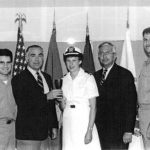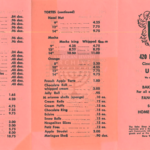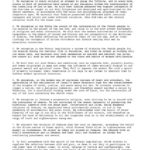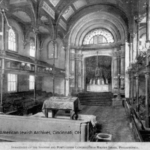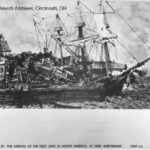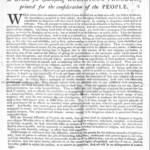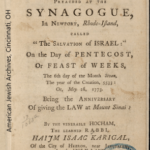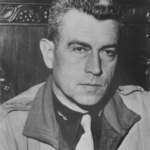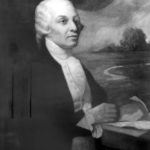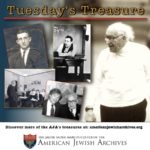_All Snapshots
How to use an Archive: Educator Guides
The American Jewish Archives contains records of Jewish leaders serving as chaplains in the US military dating back to the Civil War; however, not until 1986 did the first commissioned active-duty female chaplain join such ranks. Cincinnati native Julie Schwartz was a student at HUC-JIR in Cincinnati in 1985 when she received ecclesiastical approval from…
Read MoreAlthough Mikveh Israel, Philadelphia’s first synagogue, was not founded until 1782, the land for its cemetery has an earlier history. A burial plot was first bought by Nathan Levy in 1738 when he suddenly needed a burial place for one of his children, and land was made available to him by Thomas Penn, the son…
Read MoreThe first known Jew to arrive in America was Jacob Barsimson on August 22, 1654, and he was joined by twenty-three more Jews four months later, although most of them stayed in New Amsterdam only for a short time. Peter Stuyvesant, Governor of New Amsterdam, was not happy about having a Jewish population in the…
Read MoreThe first Jewish sermon preached and published in North America was delivered at Newport’s synagogue by an emissary from the Holy Land, Haim Isaac Karigal. The sermon was delivered on May 28, 1773, to celebrate Shavuot. According to Dr. Jacob Rader Marcus, in The American Jew, “He [Karigal] spoke in an Iberian patois that at…
Read MoreMajor General Maurice Rose is said to be the “greatest forgotten commander of World War II.” He joined the military in 1916 as a private and served along the Mexican border before fighting in the 89th division in France in 1917. He rose through the ranks and during World War II he fought in the…
Read MoreHaym Salomon (1740-1785), a Polish immigrant and New York City financial broker, was one of the largest Patriot financiers of the Revolutionary War. During the war, he was arrested by the British as a spy and forced to work as a German translator. Salomon used his position to convince German mercenary soldiers to disband and…
Read MoreJacob Rader Marcus, the founder of the American Jewish Archives (AJA), was born in Connelsville, PA on March 5, 1896. Known as the “Dean” of American Jewish historians, Dr. Marcus was the first American born, scientifically trained historian to earn an academic Ph.D. to examine the American Jewish experience. In 1947—with the great centers of…
Read More
